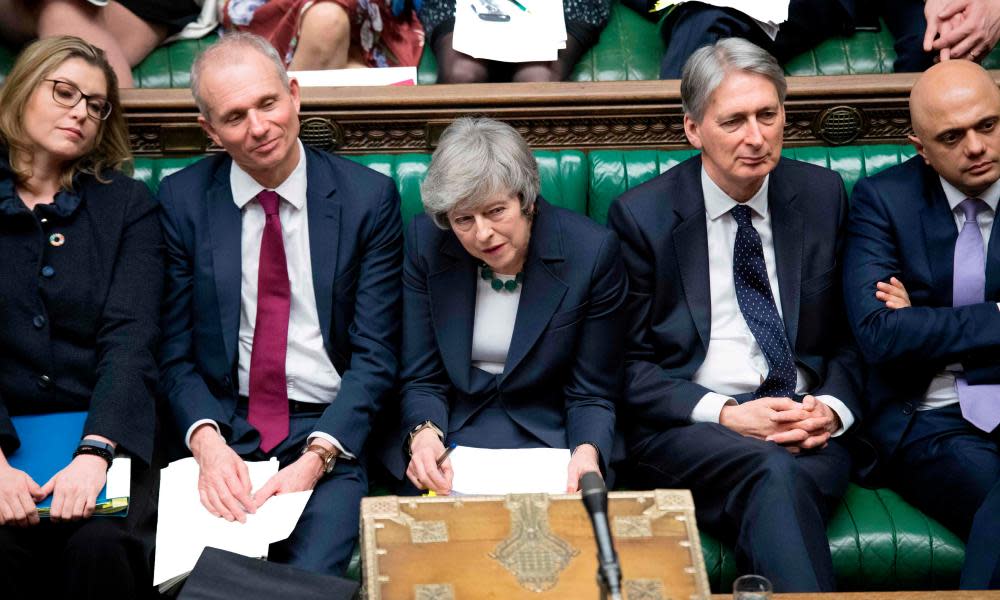The resignation of three Tory MPs is a dire warning to the party

If the resignation of Anna Soubry, Sarah Wollaston and Heidi Allen means the Tories are becoming a narrower and less tolerant party, it is a disaster. The Conservatives cannot afford to decline into a sect which drives out all those who are unable to subscribe to whatever its stern, unbending ideology happens to be at any particular moment. It must remain a broad church within which a continuous and never finally settled argument about doctrine can take place. Only then is it able convincingly to offer its services to the nation as a party of government.
Theresa May looks so weak because she has been attempting to hold her party together. She is not herself of a sectarian disposition: an accusation which can more justly be levelled at Jeremy Corbyn. She is a pragmatist, who hopes she can persuade the vast majority of her backbenchers to support a pragmatic Brexit deal, even though it does not conform in every particular to the different and mutually incompatible things they would like in an ideal world to see.
The danger of making a complete mess of Brexit is so acute that any deal is likely to seem better than the alternative
This is not a glorious position for a leader to be in. It entails cajoling your discontented followers into the recognition that the best is the enemy of the good. Few Conservatives are prepared to admit quite how difficult the prime minister’s task is, and many have ceased to trust a word she says. Her critics on the liberal left of the party think she has allowed herself to be pushed around too much by her party’s Eurosceptics. They are deeply dissatisfied with May’s handling of things, but their real quarrel is with members of the European Reform Group. At least three of them, we saw today, can no longer bear to stay in the same party as the ERG.
In 1981, only one Tory MP, Christopher Brocklebank-Fowler, joined the group which broke away from Labour and founded the SDP. According to Alan Clark, who watched from the Conservative benches as “Brocklebank” crossed “in a rather stilted little display” from one side of the Commons to the other, “The whole house roared with laughter, which was not the reaction intended by the Social Democrats.”
The Conservatives were in 1981 deeply divided. Many of the Tory wets believed Margaret Thatcher was leading them and the country to perdition. Yet they refrained from joining the four former Labour ministers, Roy Jenkins, Shirley Williams, David Owen and Bill Rodgers, who as the Gang of Four set up the SDP. The Conservative party held together, Thatcher led it to two more general election victories, and only at the end of 1990, by which time she had become an electoral liability, did her MPs throw her overboard.
May already is an electoral liability, and today’s defections will be harder to laugh off than Brocklebank-Fowler’s was. For Brexit cuts through the party like a knife, and will go on doing so while May struggles to get her deal through the Commons. This is not just an argument about ideology. It is an argument about what the government actually does, which is why it has such divisive force.
And yet I do not expect the Tory tribe to shatter into fragments. For the danger of making a complete mess of Brexit, and being blamed by the country for making a complete mess of Brexit, is now so acute that any deal, even whatever fudge May brings back from Brussels, is likely to seem to most Conservative MPs a better bet than the alternative. Most of them know they will never be forgiven, and their own political careers will be over if they get this wrong. Conservatives as various as Jacob Rees-Mogg and Nicky Morgan have recognised this, which is why they put their names to the Malthouse compromise, as a possible way forward through the Brexit negotiations.
So the paradox of these three resignations is that in the short term they could conceivably strengthen May’s position, by terrifying her MPs into obeying the great dictum attributed to that altogether more brilliant, resourceful and unscrupulous Tory leader, Benjamin Disraeli: “Damn your principles! Stick to your party.”
• Andrew Gimson is contributing editor at ConservativeHome. He is the author of Gimson’s Prime Ministers: Brief Lives from Walpole to May

 Yahoo News
Yahoo News 
